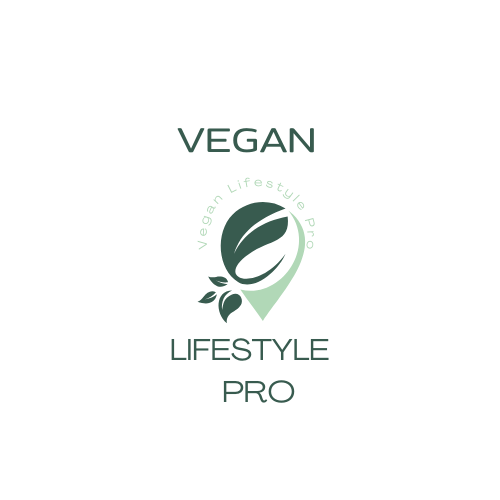In today’s fast paced world, where environmental concerns and personal health are at the forefront of discussions, embracing a vegan lifestyle has emerged as a powerful choice. Not only does it align with principles of compassion towards animals, but it also offers significant benefits for our planet and individual well-being. At the heart of this movement lies the concept of sustainable living – a harmonious balance between what we consume and how it impacts the world around us. For beginners looking to embark on this journey, understanding the basics of planting crops based on a vegan diet is a pivotal first step.
The allure of planting one’s food lies not only in the satisfaction of knowing where it comes from but also in the assurance of its quality and freshness. Imagine stepping into your garden, surrounded by vibrant greenery and the promise of a bountiful harvest. This direct connection with nature not only nourishes the body but also nurtures the soul.
To begin cultivating a vegan garden, start by choosing a location that receives ample sunlight throughout the day. Whether you have a spacious backyard or a small balcony, there are options to suit every space. Raised beds or containers can be filled with nutrient-rich soil, ideal for growing a variety of vegetables and herbs. Consider staples like tomatoes, leafy greens, peppers, and cucumbers, which thrive in different climates and provide a versatile foundation for plant-based meals.
One of the most rewarding aspects of growing your food is the ability to control what goes into it. Organic gardening practices, such as composting kitchen scraps and using natural fertilizers, ensure that your crops are free from harmful chemicals. This commitment to purity not only enhances the flavor of your produce but also contributes to a healthier lifestyle. By avoiding pesticides and synthetic additives, you can enjoy meals that are not only delicious but also promote overall well-being.
Transitioning to a vegan diet is often accompanied by a renewed sense of vitality and improved health outcomes. Studies have shown that plant-based foods are rich in essential nutrients, vitamins, and antioxidants, which play a crucial role in supporting immune function and reducing the risk of chronic diseases. Imagine the joy of nourishing your body with vibrant salads, hearty stews, and flavorful stir-fries, all crafted from ingredients grown with care in your own garden.
Beyond the personal benefits, adopting a vegan lifestyle also holds profound implications for the environment. Animal agriculture is a leading contributor to greenhouse gas emissions, deforestation, and water scarcity. By choosing plant-based foods, individuals can significantly reduce their ecological footprint and contribute to the preservation of natural resources. From conserving water to mitigating land degradation, every plant-based meal serves as a step towards a more sustainable future.
As you embark on your vegan journey, realize that it is not just about what you eat but also about the impact of your choices on the world around you. By cultivating a garden and embracing a plant-based diet, you are not only nourishing your body but also cultivating a deeper connection with the earth. Imagine the satisfaction of harvesting fresh produce, sharing meals with loved ones, and knowing that your lifestyle promotes compassion towards all living beings.
In conclusion, the path from farm to table represents a transformative journey towards sustainable living and holistic well being. By planting crops based on a vegan diet, beginners can cultivate a deeper appreciation for nature’s bounty and embark on a path towards optimal health. As you nurture your garden and savor the fruits of your labor, remember that each seed sown is a step towards a brighter, more compassionate future. Embrace the power of plants, celebrate the joys of vegan cuisine, and let your journey inspire others to join in creating a healthier, more harmonious world.
Questions And Answer’s;
Q1: What are some essential tips for beginners starting a vegan garden?
A1: Begin by choosing a sunny spot for your garden and prepare nutrient-rich soil for optimal plant growth. Start with easy-to-grow vegetables like tomatoes, leafy greens, and peppers. Embrace organic gardening practices such as composting to enhance soil fertility and avoid synthetic chemicals for a healthier harvest.
Q2: How does growing your food contribute to a healthier lifestyle?
A2: Growing your food allows you to control what goes into it, ensuring it’s free from harmful chemicals and rich in essential nutrients. Freshly harvested vegetables and herbs are packed with vitamins, antioxidants, and flavor, promoting overall well-being and supporting immune function.
Q3: What are the environmental benefits of adopting a vegan diet and cultivating a garden?
A3: Vegan diets significantly reduce environmental impact by minimizing greenhouse gas emissions, conserving water, and preserving natural habitats. Cultivating a garden further enhances sustainability by promoting local food production and reducing reliance on industrial agriculture.
Q4: How can a vegan diet contribute to preventing chronic diseases?
A4: Plant-based diets are associated with lower risks of heart disease, diabetes, and certain cancers due to their high fiber, antioxidant, and nutrient content. By avoiding animal products and focusing on whole, plant-based foods, individuals can improve their long-term health outcomes.
Q5: What is the emotional and spiritual impact of growing your food as part of a vegan lifestyle?
A5: Growing your food fosters a deeper connection with nature and promotes a sense of mindfulness and gratitude. The process of nurturing plants from seed to harvest can be profoundly satisfying and grounding, enriching both emotional well-being and spiritual fulfillment.

